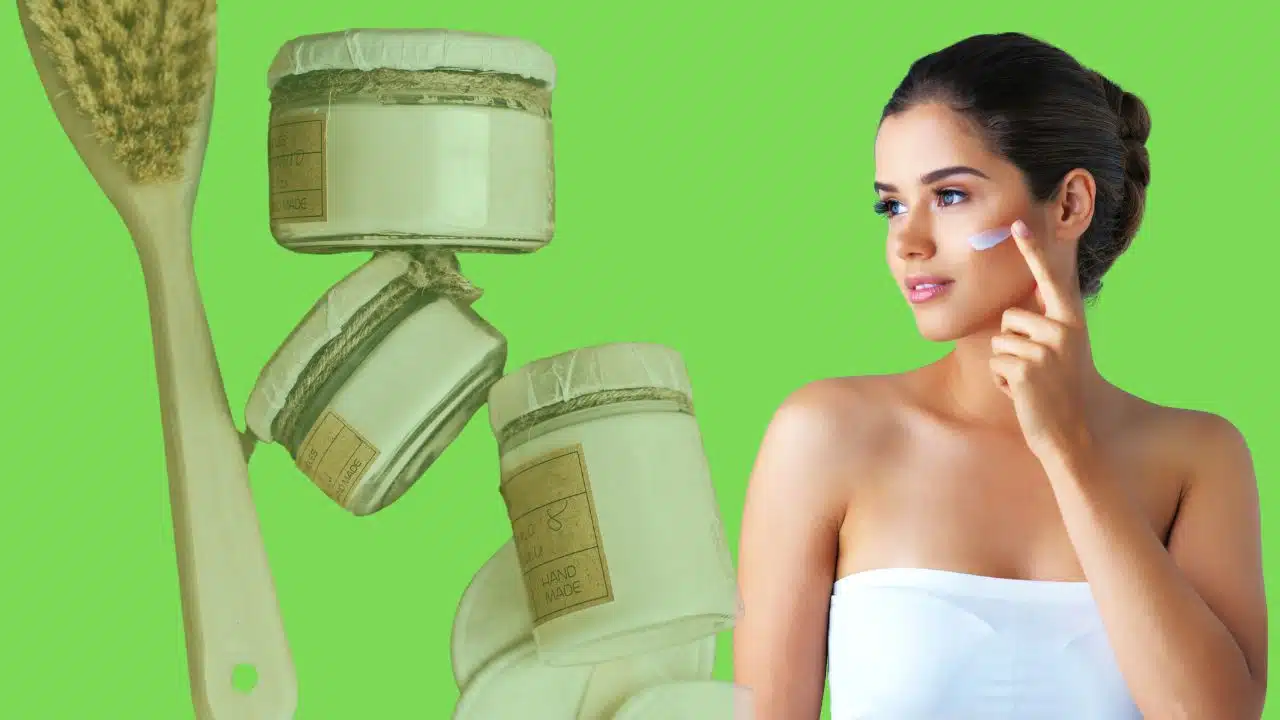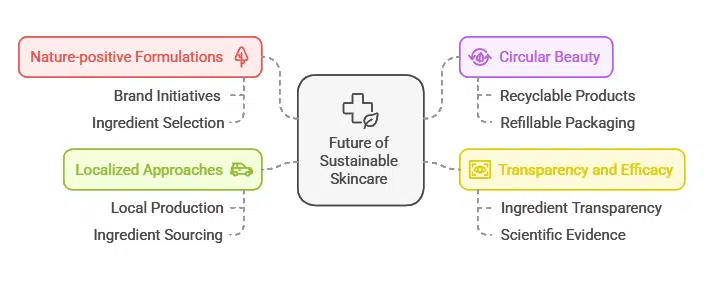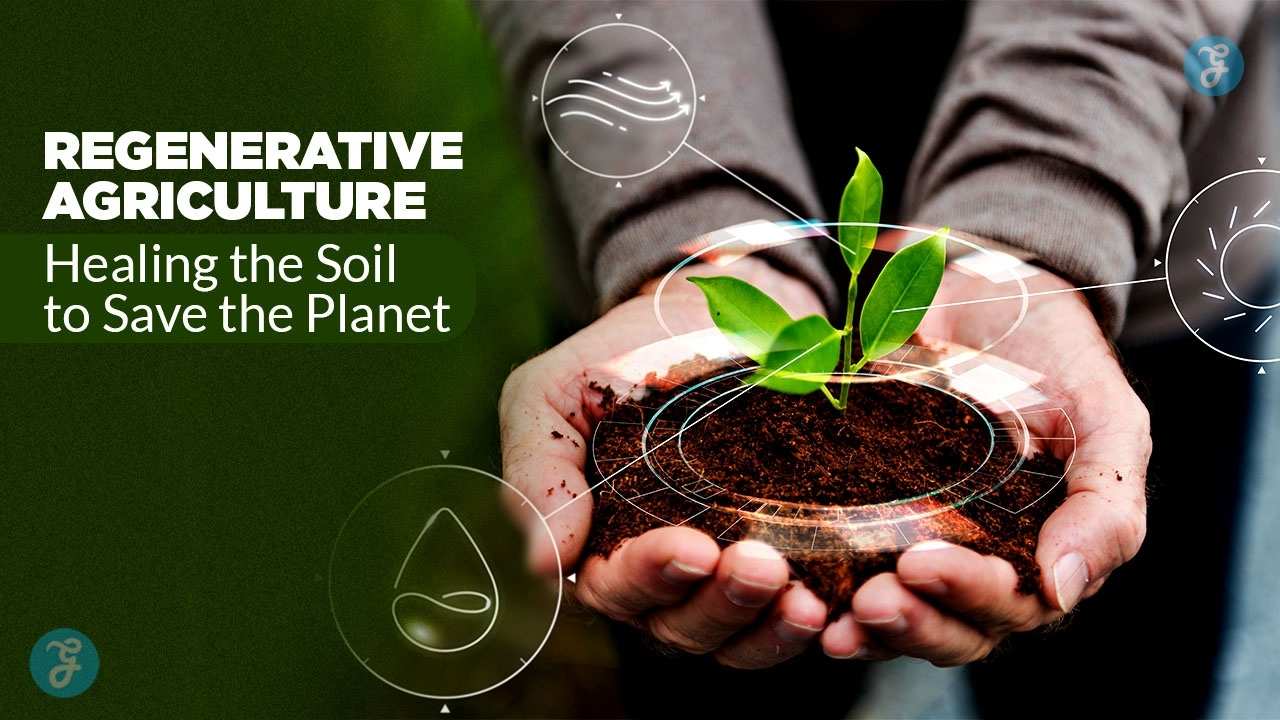When it comes to beauty and personal care, sustainability has become a top priority for consumers worldwide.
People want skincare products that are not only effective but also environmentally friendly.
But what is the most sustainable skincare brand? Finding the answer requires exploring brands that use eco-friendly practices, ethical sourcing, and recyclable packaging while delivering excellent results.
The Rise of Sustainable Beauty
The global organic skincare market is projected to grow from $11.3 billion in 2024 to $22.4 billion by 2032, with a compound annual growth rate (CAGR) of 8.9%. This significant growth reflects consumers’ increasing preference for products that are not only effective but also environmentally responsible.
Criteria for Sustainable Skincare
To evaluate the sustainability of skincare brands, we must consider several factors:
- Ingredient sourcing and quality
- Packaging materials and recyclability
- Manufacturing processes
- Carbon footprint and offsetting initiatives
- Transparency and ethical practices
Top Contenders for Most Sustainable Skincare Brand
1. True Botanicals
True Botanicals stands out for its commitment to organic and wildcrafted ingredients, MADE SAFE certification, and sustainable sourcing practices.
The brand uses recyclable packaging and focuses on creating potent formulas that require less product use, reducing overall consumption.
2. Herbivore Botanicals
Herbivore Botanicals emphasizes natural and certified organic ingredients, with a strong focus on “skinimalism.” Their products are cruelty-free, vegan, and packaged in recyclable materials, aligning with the growing trend of minimalist, sustainable beauty routines.
3. OSEA
OSEA has been a leader in sustainable skincare for over 25 years, utilizing seaweed as a key ingredient. The brand is Climate Neutral Certified, uses glass and recyclable packaging, and powers its operations with renewable energy.
4. Biossance
Biossance is pioneering sustainable practices in the beauty industry. They use sugarcane-derived plastic for packaging, demonstrating that sustainable solutions can protect delicate formulations without compromising on performance.
5. REN Clean Skincare
REN made a bold commitment to become zero waste by the end of 2022, focusing on eliminating superfluous packaging and sample sachets. This dedication to reducing waste sets a high standard for sustainability in the industry.
Innovative Sustainable Practices
Regenerative Sourcing
Brands are increasingly adopting regenerative practices, which not only sustain but improve the environment. For example, some companies are focusing on ingredients that contribute to carbon sequestration and promote biodiversity.
Waterless Formulations
With water scarcity becoming a global concern, waterless beauty products are gaining momentum. These concentrated formulas reduce water usage and often come in solid forms, minimizing packaging waste.
AI-Driven Sustainability
Artificial intelligence is being employed to optimize formulations and reduce waste. By 2025, AI-manufactured routines are expected to take center stage, allowing for more personalized and efficient product use.
Challenges in Determining the “Most Sustainable” Brand
While many brands are making significant strides in sustainability, declaring a single “most sustainable” skincare brand is complex. Sustainability encompasses various aspects, and brands may excel in different areas:
| Aspect | Example Brand | Notable Practice |
| Packaging | Lush | 65% of products unpackaged |
| Ingredient Sourcing | Tata Harper | Many ingredients grown on owner’s farm |
| Carbon Neutrality | OSEA | Climate Neutral Certified |
| Waste Reduction | REN | Zero waste commitment |
| Innovation | Biossance | Sugarcane-derived plastic |
Consumer Role in Sustainable Skincare
Consumers play a crucial role in driving the sustainable skincare movement. By 2025, 95% of consumers are expected to be “trying to live more sustainably.” This shift in consumer behavior is pushing brands to innovate and improve their sustainability practices continually.
The Future of Sustainable Skincare
Looking ahead to 2025 and beyond, several trends are shaping the future of sustainable skincare:
- Nature-positive formulations: Brands like Faith In Nature are pioneering approaches where nature itself has a voice in product development.
- Circular beauty: More companies are adopting circular economy principles, focusing on recyclable, refillable, and reusable products.
- Transparency and efficacy: Consumers are demanding clear information about ingredients and proven results, pushing brands to back up their claims with scientific evidence.
- Localized approaches: Brands are exploring ways to reduce their carbon footprint through localized production and ingredient sourcing.
Takeaways
So, what is the most sustainable skincare brand? The answer depends on what aspects of sustainability matter most to you.
Whether it’s vegan formulas, zero waste, or ethical production, brands like Biossance, Lush, and Tata Harper are leading the way. By supporting these brands, you’re not only caring for your skin but also contributing to a healthier planet.








































